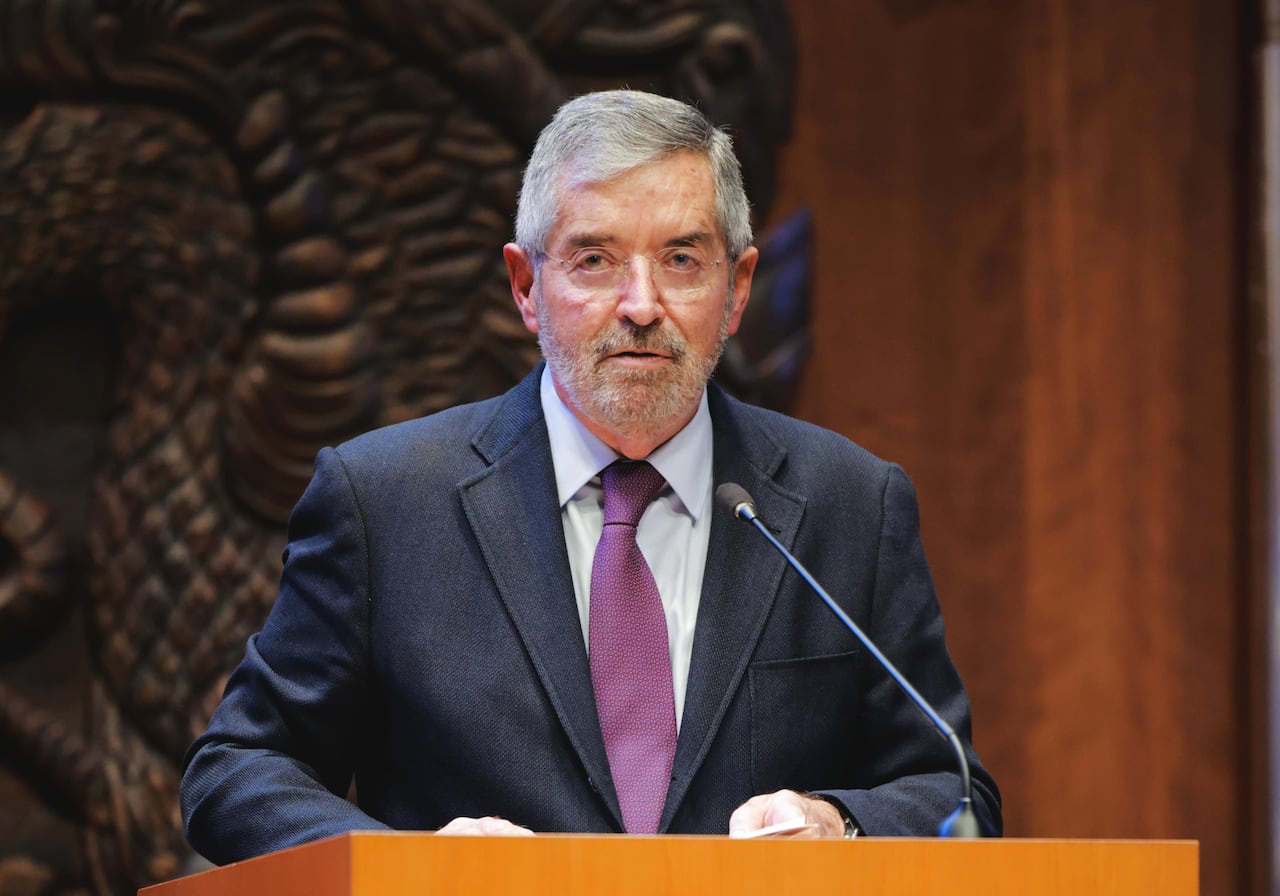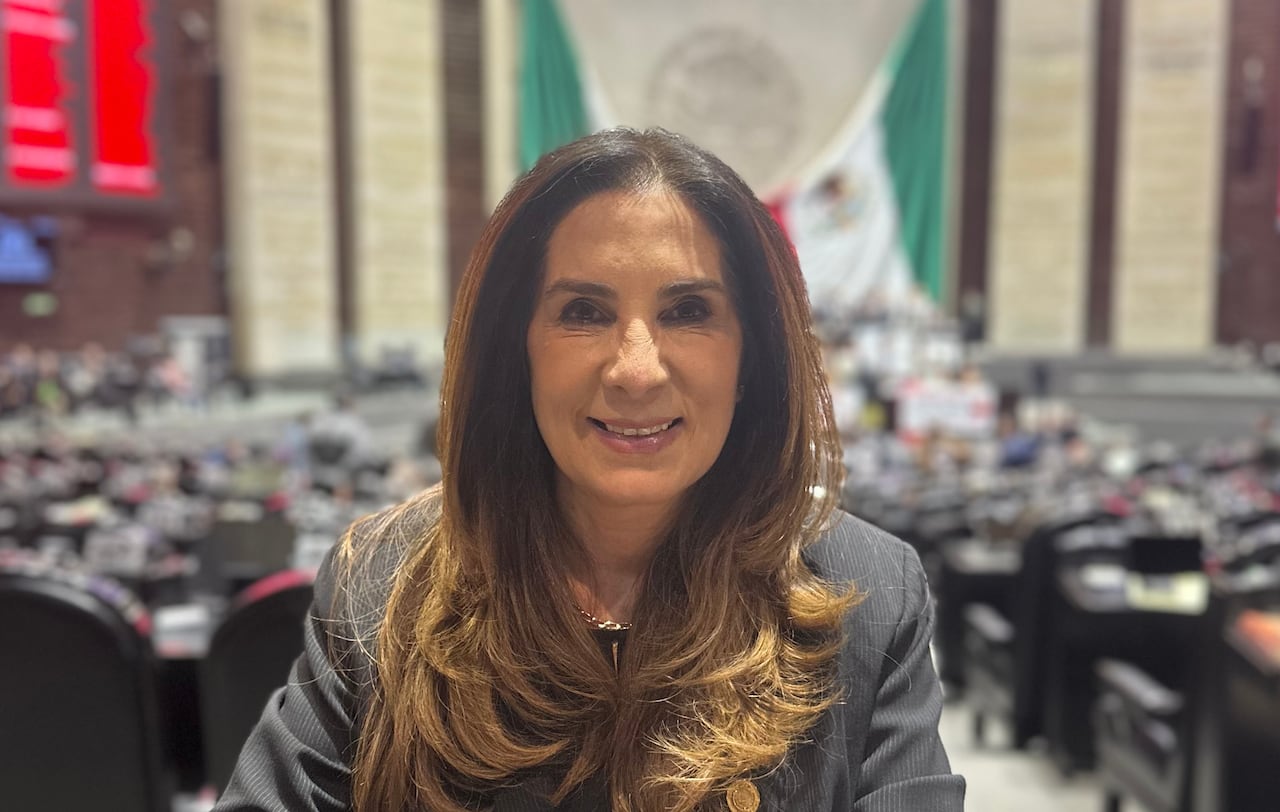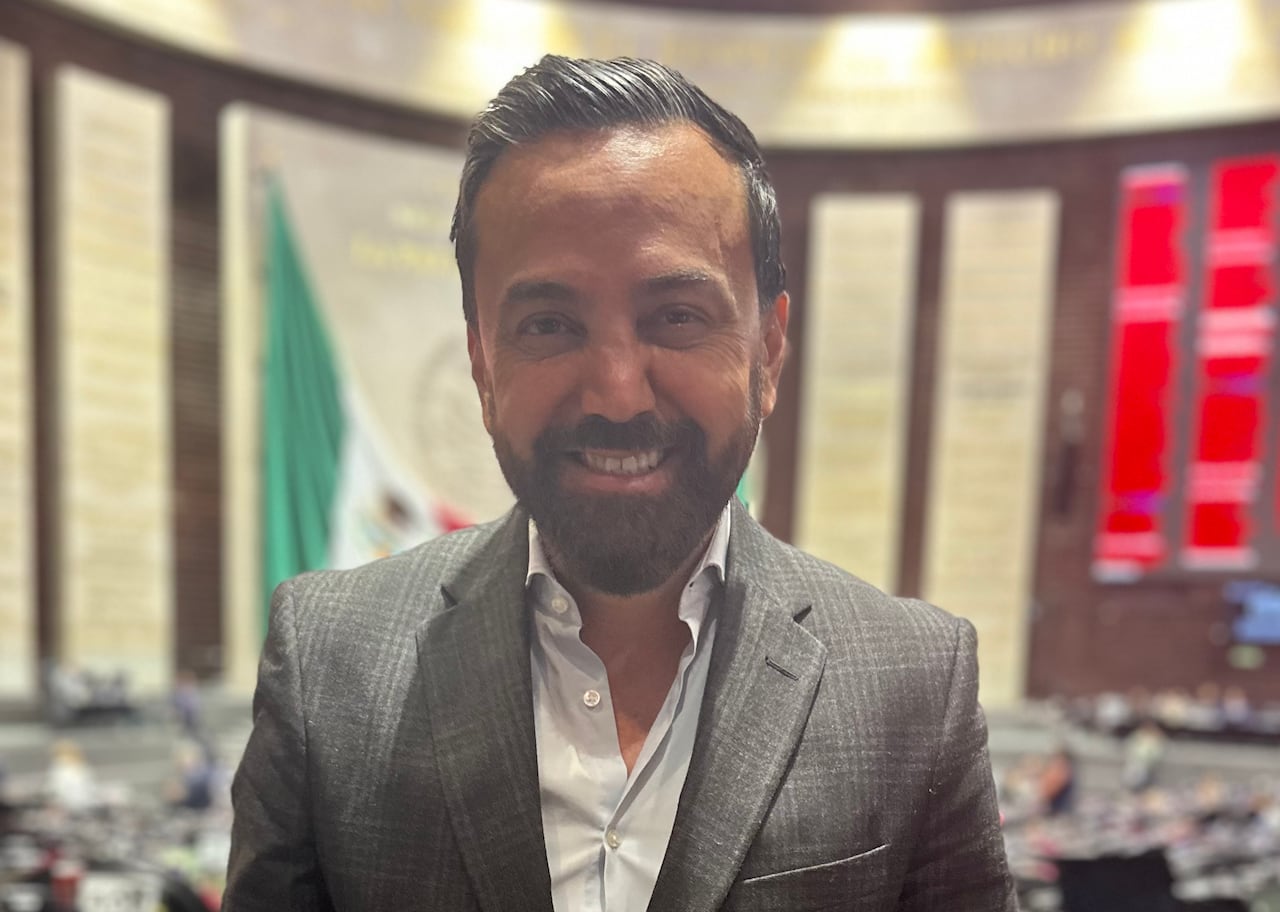A veteran Mexican lawmaker says the era of trilateral trade deals between Mexico-Canada and the U.S. is ending.
Deputy Germán Martínez Cázares, a former member of the ruling National Regeneration Movement (Morena) party, says the existing agreement won’t survive the stress exerted by the nationalism pushed by the current U.S. and Mexican administrations.
“We are going to see bilateral agreements between Mexico and Canada, between Mexico and the United States,” Martínez Cázares, told CBC News on Tuesday during a sitting of Mexico’s lower house, known as the Chamber of Deputies.
“We are entering into uncertain territory.”
While the Mexican government, from President Claudia Sheinbaum down to rank-and-file Morena deputies, continually stresses its commitment to a continued trilateral trade deal, there is a growing sense in the country’s commentariat that the U.S. is signalling an intent to change course.
Not long after Martinez Cazares spoke with CBC News, U.S. President Donald Trump, with Prime Minister Mark Carney sitting next to him in the Oval Office, suggested he was open to doing “different deals” with “individual countries” when asked by a reporter if he was committed to current trilateral trade agreement.
The comments made the front page in at least three Mexican newspapers Wednesday, each using variations of headlines saying Trump threatened to scrap the deal, known in Canada as the Canada -U.S.-Mexico Agreement (CUSMA), and in Mexico as the Tratado entre México, Estados Unidos y Canadá (T-MEC).
Trump’s words added fuel to fire set by U.S. Trade Representative Jamieson Greer who last week questioned the utility of the deal — saying the individual U.S. relationships with Canada and Mexico were “so different… in so many ways” that it led one to question: “Why did we bundle it together?”
NAFTA spurred investment
Mexico’s Secretary of Foreign Affairs Juan Ramón de la Fuente Ramírez faced a flurry of media questions on the issue Wednesday morning as he arrived for a hearing before the Mexican senate. He reiterated the government’s support to seeing CUSMA through the 2026 review process and at one point invoked Carney’s name.
“Prime Minister Carney was here not too long ago. He also has the same perspective in favour of the review and the renewal of the trade deal,” said Mexico’s top diplomat.
Carney visited Mexico in September to meet with Sheinbaum to strengthen bilateral ties.

Mexico was Canada’s third largest trading partner, after the U.S. and China, in 2024, according to Canadian government data. Canada was Mexico’s fifth largest trading partner during the same period.
The two countries recorded about $56 billion in trade in 2024, according to the data. This figure has grown dramatically since the signing of the 1994 North American Free Trade Agreement (NAFTA) when Canada-Mexico trade totalled just under $5 billion, according to federal government data.
Today, Mexico is an integral part of the automotive industry’s supply chain, exporting vehicles and parts across the U.S. and Canadian borders. There are over 60 Canadian car part companies operating there, employing about 30,000 Mexicans, according to Canadian data.
Mexico also exports machinery, boilers, medical equipment, furniture and produce like tomatoes, avocados and guavas, to Canada under CUSMA, while Canada sends propane, diesel, petrochemical products, seed oils and wheat.
Export Development Canada has identified Mexico “as a priority market.” The country received about $46.5 billion in direct investment from Canada in 2024, a figure that has grown steadily as a result of CUSMA, which creates certainty and stability for Canadian capital.
Canadian companies also make up the majority of foreign dollars in the Mexican mining sector, while also investing about $10 billion in the energy sector.
In 1993, Canadian direct investment in Mexico was a mere $3 billion, according to a report published by the Library of Parliament in 2024.

Ottawa businessman Etienne Poisson, who founded Mechatronic Design Solutions, says Mexico has become a more attractive option for expansion because of the tariff threats from the U.S.
The U.S. accounts for about 30 per cent of Poisson’s firm’s business, which develops automated equipment for factories. It is currently CUSMA compliant and has avoided tariffs so far.
“There’s still the fear that that could change, and since Mexico is part of the CUSMA agreement, I think it was the next logical place to come and do business,” said Poisson.
Poisson’s firm is promoting a line of industrial ovens that could be adapted to produce tortillas, grilled meats, flat breads and cookies.
“I’m optimistic that, regardless of what happens to CUSMA, there will be a free trade agreement between Canada and Mexico,” he said.
Controversy over customs law
Martínez Cázares represents a district in the western state of Michoacan, which he says is heavily dependent on the export of agricultural products like avocados, lemons and guavas to the U.S. and Canada.
He says the Sheinbaum government’s nationalistic impulses are weakening its commitment to free trade.
“Walls are being resurrected,” he said.
The Sheinbaum administration has recently faced attacks over a proposed overhaul of the country’s customs system. The bill seeks to modernize and tighten customs controls and allow for the tracing of goods to counter corruption and tax evasion.
The opposition says it will actually lead to a thicker border, impose additional costs on importers and run afoul of CUSMA by changing import rules midstream, while doing little to fight corruption.
“You can’t change the rules while a trade agreement is in force,” said Deputy Patricia Flores Elizondo, a member of the Citizen’s Movement party and former chief of staff to Felipe Calderón, who was Mexico’s president from 2006 to 2012.

Deputy Francisco Arturo Federico Ávila, spokesperson for the Morena caucus in the Chamber of Deputies, says the opposition attacks were just meant to smear the government’s efforts to streamline the customs process and counter tax avoidance schemes.
“The essence [of the law] is to reduce corruption, which has been a sad symptom of the customs offices in our country, inherited from [previous] governments,” said Ávila.
Montserrat Aldave, chief economist with Mexican brokerage firm Finame, says the bill really aims to deal with U.S. claims Chinese products were being relabelled as Mexican to avoid tariffs. If implemented correctly, it could improve trade, she says.
“This could reduce certain risks and bolster Mexico’s position, not only in its trade relations with Canada, but also make the cross-border process more secure and transparent,” said Aldave.
While the proposed law puts more accountability on the shoulders of customs brokers, it adds no additional oversight to the secretary of national defence, who was handed control over customs operations under the previous Morena administration of Andrés Manuel López Obrador.
“There’s no mechanisms of control over them,” she said.
The bill passed the Morena-controlled lower house Tuesday and is now before the Senate, which Morena and its allies also control.







